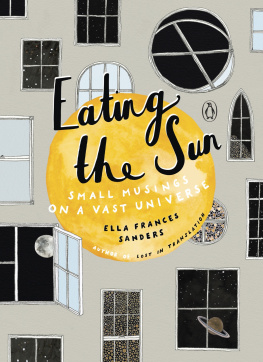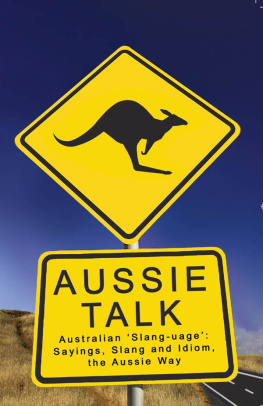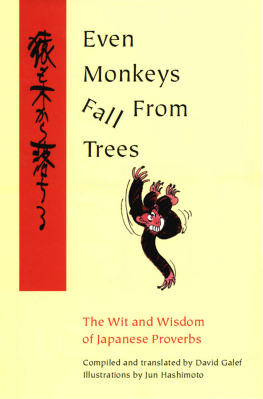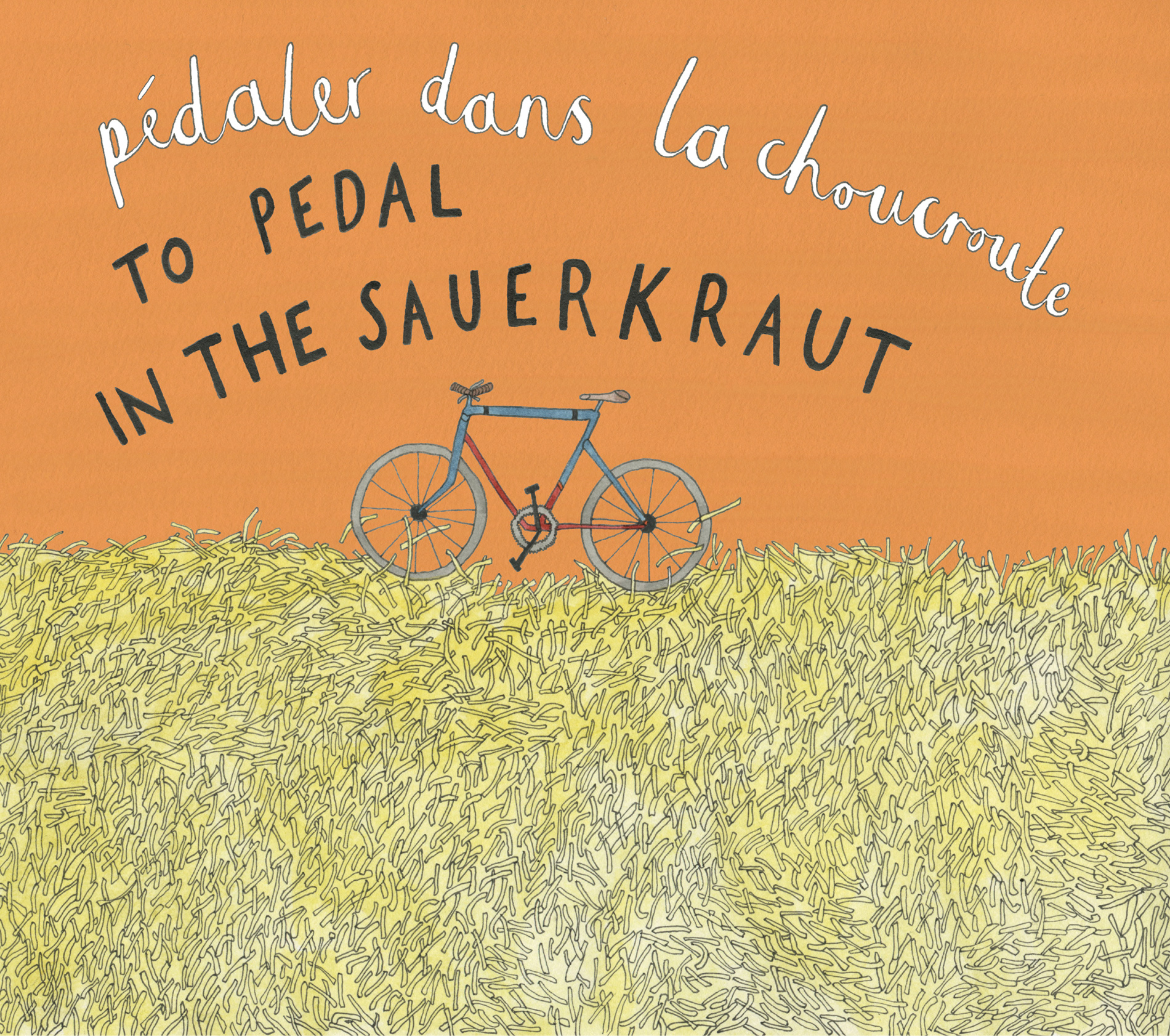ABOUT THE AUTHOR
Ella Frances Sanders is a writer out of necessity and an illustrator by accident. She currently lives and works in the city of Bath, UK, without a cat. Her first book, Lost in Translation: An Illustrated Compendium of Untranslatable Words from Around the World, was a New York Times bestseller and is now, perhaps ironically, being translated into many other languages. She still doesnt know exactly how it all happened, but things seem to be going OK.
She can be found at ellafrancessanders.com and various other social media places.
ACKNOWLEDGMENTS
This book was no less strange than the first.
I cannot not thank my no-longer-agent Elizabeth Evans, who broke my heart by moving on to new escapades just before we tied up this projectyou know precisely how much you have helped me, how much you have given me. Thank you for believing so entirely in someone who didnt have a single heck of a clue what she was doing. You may not necessarily want my eternal love and gratitude, because thats weird, but you have it anyway.
Thank you to all at the Jean V. Naggar Literary Agency, which contains some of the nicest ever humansIm lucky to have you to scrape me off the floor when I invariably fall over, and youve all been so patient with me: thank you. An almighty thank-you to Jennifer Weltz, for persuading many other countries that they needed to translate and publish my first book, and for undertaking the task of agenting mewe shall conquer all.
To the entire team at Ten Speed Press, thank you. I may have never met you in person, but Im sure we would have a real hoot. Thank you all for holding my hand and letting me make another book, and thank you for the endpapers and putting up with my insistent questions about this and that and whatever else. Kaitlin Ketchum, you are an editor sent from the heavens: thank you for making this process as magical and star-filled as the last time. To Nicola Barr, Anna Redman, Rosemary Davidson, and all at Square Peg in the UKthank you for being closer to home.
And to my family like no other.
And to Vincent.
Thank you.
Copyright 2016 by Ella Frances Sanders
All rights reserved.
Published in the United States by Ten Speed Press, an imprint of the Crown Publishing Group, a division of Penguin Random House LLC, New York.
www.crownpublishing.com
www.tenspeed.com
Ten Speed Press and the Ten Speed Press colophon are registered trademarks of Penguin Random House LLC.
Library of Congress Cataloging-in-Publication Data Sanders, Ella Frances, author.
The illustrated book of sayings : curious expressions from around the world / Ella Frances Sanders.
pages cm
1. Language Arts & DisciplinesLinguisticsGeneral. 2. ArtPopular Culture. 3. ArtIndividual ArtistsGeneral. I. Title
PE1460 .S36 2016
413/.1dc23
2016003173
Hardcover ISBN:9781607749332
Ebook ISBN:9781607749349
Sources: kzr.agrobiologie.cz, www.chinatownstories.com, www.etymologiebank.nl, secouchermoinsbete.fr, www.deutschland-feiert.de, www.afriprov.org, mek.oszk.hu, www.icandfw.com, blogs.ei.columbia.edu, www.phrases.org.uk, virtualneko.com, www.omniglot.com, www.wordsense.eu, afroginthefjord.com, www.quora.com, www.elephant.org.il, serbiantiger.blogspot.co.uk, inthegarlic.com, www.spanishdict.com, interfluency.wordpress.com, Dutch Messengers by Cornelis Dirk Andriesse, The Netherlands and World War by Hubert P. Van Tuyll Vam Serooskerken, Dutch Foreign Policy Since 1815 by Amry Vandenbosch, Wordbook of Australian Idiom Aussie Slang by Kerrin Rowe and Carol Rowe, The Invisible Code by William M. Reddy, Halima by Mercy Ngozi Alu.
v4.1
prh
INTRODUCTION
Welcome to the logophiles and the linguists, to those who speak one language and to those who speak in many tongues, to the older and the younger, to those with high expectations and even higher dreams, to those who dont know quite where they are yet, to those who have picked up this book not knowing quite what it is
The Illustrated Book of Sayings is your introduction to some of the worlds strangest and most wonderful expressions. I say introduction because this book would need to be thousands upon thousands of pages long (and several volumes after that) to include all the curious, magical, and transcendent sayings we use to express ourselves. It is a beginning; for you and for me.
The fifty-two proverbs, expressions, and idioms in these pages will perhaps give you new ways of thinking about the world around you; hopefully, they will breathe some magnificent life into the everydaycolor the view slightly differently so that you might be able to see the previously unseen. Most of these sayings reference the natural world in some waythe landscapes and creatures and vegetables alongside which we have evolvedand this says an awful lot about how we have made sense of things in the past, and how we make sense of things nowwhether the saying is from a Scandinavian language or an African one. We cast our line into the blue depths of the languages that we know, hoping to catch the right words, and reel them back into our heads so that we might be able to unfold a situation or happening with understanding and insight.
There is a quote that I cannot forget from Brandon Stantons photography project and subsequent book Humans of New York: Im learning to be more careful with my words. Words that seem meaningless at the time can end up having a lot of power. Seeds that you didnt even intend to plant can fall off you and start growing in people.
The imagery that accompanies this quotation has been stuck in my head since I read it, and that handful of words has sat with me, patiently, throughout the creation of this book. I can no longer simply think of language in terms of letters and words; rather, I think of it as tall plants and tiny seeds and flowering vines that grow slowly but surely around us as we wander through this world trying to learn how we should live.
The sayings in this book are like plants that have, in many cases, been growing for centuries, passed down from one generation to another, grown through one community to another. They have helped us to understand ourselves and othersevents that we live through together and the events that we live through alone. The expressions you will find between these pages have shaped and been shaped by diverse people and cultures. They have given us relief, given us reason to laugh, given us ways to describe both the mundane and the profound minutes from which our lives grow. They speak of birds and honey and lakes. Dancing bears and broken pots. Sponge cake and clouds and radishes.
These expressions are ageless, tireless. Subject to change but immortalized in memory.
And they are now yours.
The idea of this is completely ridiculouswhy on earth would anybody be pedaling their bicycle through sauerkraut? Used in the intellectual sense, the idiom means to be at a complete loss or to have lost the train of ones thoughts. Used in a practical sense, it can mean that something is no longer progressing and is ineffective, that the wheels are spinning. Unlike many odd idioms, this ones content is actually related to its originit comes from the early Tour de France races. The broom wagonsthe vehicles that follow cyclists and pick up stragglers or those who are unable to finish the race within the allotted timeoften featured billboards advertising sauerkraut.
Next page












